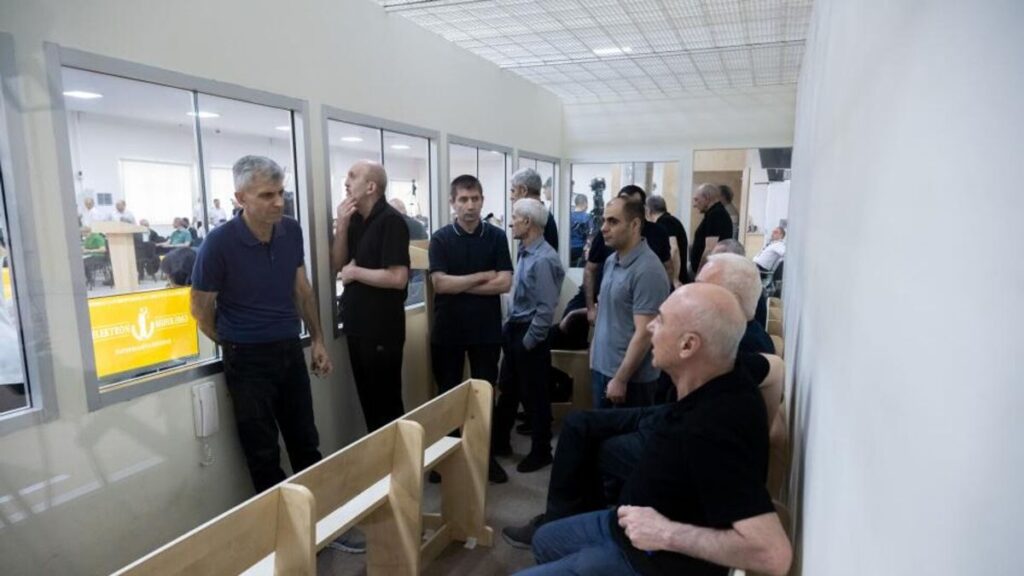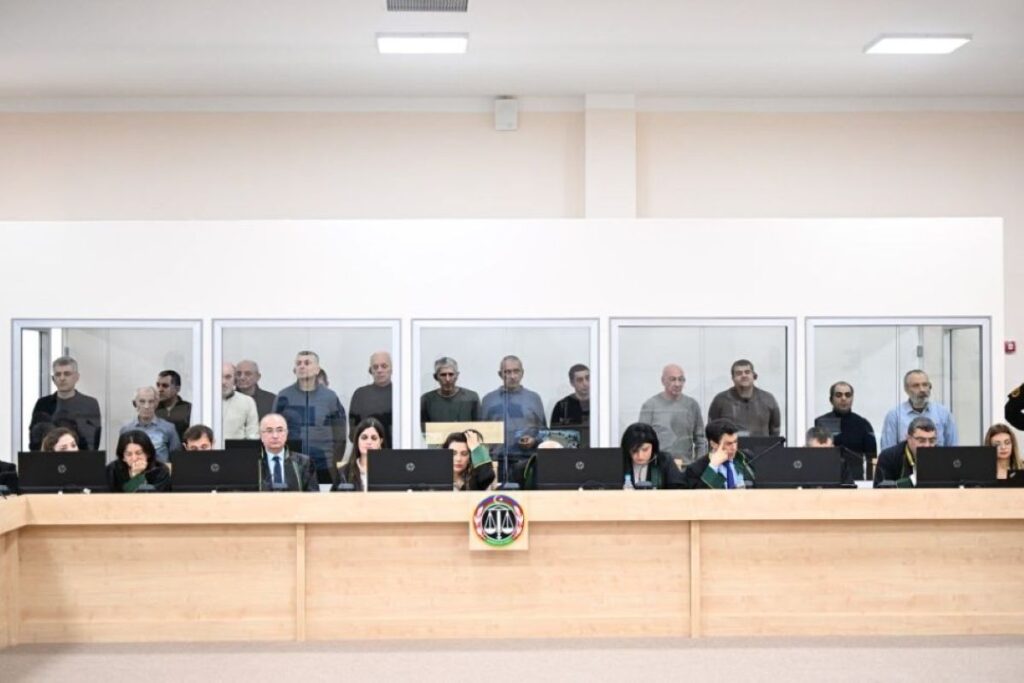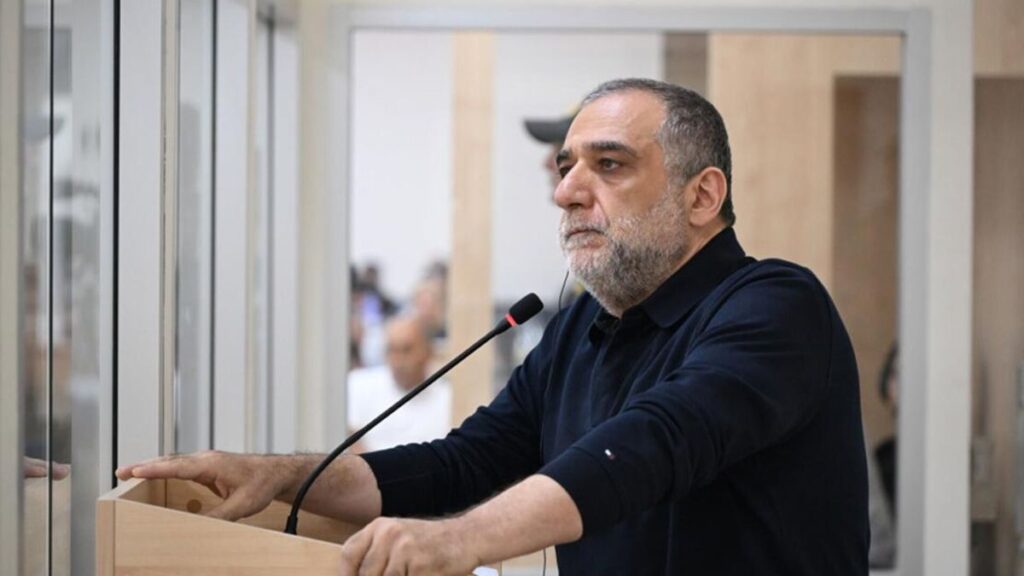Armenian prisoners in Baku: reports of suicide attempts and hunger strikes, and Yerevan’s response
Suicide attempts and hunger strikes by Armenian prisoners in Baku
Armenian media are reporting suicide attempts and hunger strikes among Armenian prisoners held in Azerbaijani jails. News of the incidents emerged after phone calls with their families. According to reports, 46-year-old Vigen Euljekchian, a citizen of both Armenia and Lebanon, has been on hunger strike for a month in a Baku prison. His lawyer, human rights defender Luchiana Minasyan, is preparing an appeal to the Azerbaijani authorities demanding medical assistance.
It remains unclear which prisoner attempted suicide. Another rights defender, Siranush Sahakyan, told journalists only that the case does not involve the former military-political leadership of Nagorno-Karabakh. She linked the recent incidents to the halt of the International Committee of the Red Cross’s activities in Azerbaijan.
Well-known blogger Alexander Lapshin also confirmed “the dire situation of the Armenians held there,” saying he had received the information through his own channels but would not disclose sources for fear of endangering them.
Lapshin himself spent seven months in an Azerbaijani jail in 2017 after being arrested for visiting Nagorno-Karabakh. Drawing on his own experience, he said:
“The information that reaches us is only what the Azerbaijani authorities allow. All phone calls are strictly monitored by investigators, who are on the line and can cut the call if something is said that they don’t like. So if any information reaches us, it’s because the Azerbaijani authorities wanted it to.
This is pressure on Armenian society. The goal is to show that these unfortunate people — and they are, without doubt, unfortunate — are dying. Both the ordinary soldiers still held since 2020 and those arrested in September 2023 during the ethnic cleansing in Artsakh. It’s done to pressure Armenia’s leadership into making concessions.”
Armenian human rights defenders likewise believe that “Baku is using the prisoners as hostages and a tool of political pressure on Armenia.”
Below, human rights lawyer Siranush Sahakyan and Azerbaijan expert Tatevik Hayrapetyan comment on the situation of the Armenians imprisoned in Azerbaijan.

- ‘The last hope for Armenian prisoners is dying’: Red Cross office in Baku to close
- Armenia drops search for Azerbaijani who beheaded elderly Armenian man — but why?
- ‘Dictatorship can’t deliver justice’: Former Karabakh officials on trial in Baku
- ‘Their only guilt is being Armenian’: European Parliament urges Baku to release prisoners
Siranush Sahakyan, human rights lawyer representing Armenian prisoners at the ECHR
Armenians have been left in complete isolation
“The ICRC used to visit Armenian detainees in Azerbaijan once every month or two. Sometimes Baku delayed permission, but after negotiations the visits usually went ahead. During those meetings, the detainees were able to contact their families. Through the Red Cross, they sent letters home and received parcels with food and hygiene items they lacked.
Direct monitoring by the ICRC was very important. It assessed the physical and psychological condition of the detainees. The organisation’s mandate does not allow it to make problems public, but they were documented and passed on to international bodies and families.
Information from the ICRC was considered reliable and neutral. Visits by its staff also had a positive effect on the families’ state of mind. Trusting the ICRC, they were relatively reassured. Unlike the false information spread by Azerbaijan, including through show trials in Baku, the ICRC’s data was credible.
Today Armenian detainees in Azerbaijan are in isolation. No international body has access to them. Entry to the country is still closed to international monitors, and anti-torture mechanisms are not functioning. There are now no channels left for obtaining objective information about the prisoners.
The last time ICRC staff met with Armenian detainees was in June 2025. Although the organisation’s work in Azerbaijan officially ended in September, from June onwards its representatives were already unable to visit them.”
Prisoners may reveal information unwanted by Baku
“The hostage situation is clearly political and used by Azerbaijan as a tool to pressure Armenia. Manipulation is therefore to be expected. Baku keeps this issue under its jurisdiction, pointing to the absence of provisions on prisoners in the peace agreement. It decides their fate, pushing them into a humanitarian crisis in order to influence public sentiment in Armenia.
Although all communication is strictly monitored, given the prisoners’ dire condition, some may feel they have nothing to lose and disclose the truth — rather than the statements made under pressure. They may speak out during phone calls, believing their situation cannot get any worse.
All identified detainees are known to the international community. Their cases are being heard in international courts, which require Azerbaijan to provide information. There is a risk of uncontrolled actions by Baku, but its accountability to international bodies makes radical steps, such as killings, undesirable.
That said, nothing can be ruled out, since there are confirmed cases of torture and killings of Armenian prisoners. These are under investigation at the ECHR and the International Court of Justice. Among them are the demonstrative killings near Lake Sev Lich in Armenia’s Syunik region, and the executions in Hadrut square — all investigated as war crimes.
Sadly, it is impossible to uncover all of Azerbaijan’s war crimes. But today more than 30 cases involving the killings of prisoners are under investigation, alongside cases of executions and of torture and killings of Armenians in Azerbaijani prisons.”

The interests of international actors may shift
“Azerbaijan today does not fear international pressure too much, since it shares common interests with global players, and the geopolitical reality works in its favour. But the authorities in Baku are concerned about evidence of war crimes, which in a different geopolitical context could become a threat to the Aliyev family. This explains the clear effort to leave no trace of those crimes.
It is this fear of international courts — which could expose the scale of actions against Artsakh and Armenia — that explains why Aliyev has demanded the withdrawal of international lawsuits as a condition for normalising relations between the two countries.”
Tatevik Hayrapetyan, an expert on Azerbaijan
Assessment of the trial
“Armenian prisoners and the high-profile trial in Baku have become powerful tools in Aliyev’s hands for anti-Armenian propaganda and incitement of hatred. Even after the Washington agreements, where both sides pledged not to stir hostility, Aliyev returned home and immediately insulted Armenians, calling them ‘enemies’ and a ‘sick society’. He continues to demand changes to Armenia’s constitution, even though that is an internal matter.
Headlines about the show trial in Baku build myths of horrific crimes supposedly committed by Armenians against Azerbaijan, relying on absurd testimony.
For example, in the case of Ruben Vardanyan, witnesses speak of ‘crimes’ from the 1990s — even though Vardanyan had no connection with Artsakh at that time.
The Russian businessman of Armenian origin announced on 1 September 2022 that he was renouncing Russian citizenship and moving to Nagorno-Karabakh. Before that, he had never lived there, held no posts and had no power to make decisions.

Azerbaijan makes no attempt to hide such fabrications. The trial is taking place without international journalists or observers, despite claims of “openness.”
Aliyev is using the prisoners as leverage against Armenia. In Bakinsky Rabochiy, a newspaper founded by the Presidential Administration of Azerbaijan, an article openly stated that “the prosecutor’s indictment is directed against Armenia.”
Suicide attempts and hunger strikes by Armenian prisoners in Baku





















